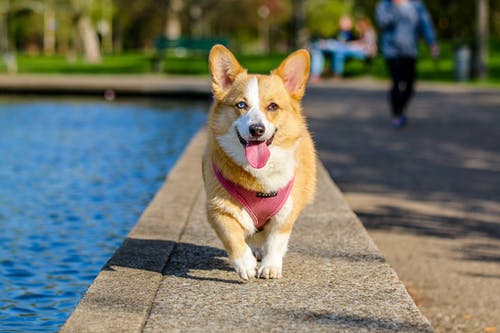Bringing home a new furry companion comes with a whirlwind of cuddles, playtime, and adorable mayhem. But let’s not forget the serious business of healthcare that ensures our little buddies thrive during their crucial first year. So, whether you’ve got a bouncy puppy or a curious kitten, let’s trot through the essential vet visits, vaccinations, and care pointers you’ll need to keep in mind.
First Vet Visits
Setting the Tone for Future Health
For most pet parents, the initial vet visit is a pivotal moment. It’s when you’ll get a clear picture of your pet’s overall health. You should schedule your puppy or kitten’s first check-up within the first week of bringing them home. This visit usually includes:
- A thorough physical examination to check for any congenital defects
- Initial vaccinations
- Deworming medication, if necessary
- Discussing the best diet for growth and health
- Flea and tick prevention strategies
Navigating the Vaccination Schedule
Vaccinations play a critical role in preventing a host of diseases that can affect puppies and kittens.
Puppy Vaccinations
For puppies, the vaccination schedule starts as early as 6 to 8 weeks of age and includes shots for:
- Parvovirus
- Distemper
- Canine hepatitis
- Rabies (as per local laws, often around 3-6 months of age)
Kitten Vaccinations
Kittens, starting at around eight weeks, will receive vaccinations for:
- Feline panleukopenia (feline distemper)
- Feline calicivirus
- Feline herpesvirus
- Rabies
Parasite Prevention and Control
Both puppies and kittens are prone to parasites, be they internal, like worms, or external, like fleas and ticks. Regular treatment and preventative measures are essential.
Let’s Talk Worms
Puppies and kittens should be dewormed regularly, as intestinal parasites can be common in young animals:
- Roundworms
- Hookworms
- Tapeworms
Most vets will recommend a deworming schedule that starts at about two weeks of age and continues at two-week intervals until the puppy or kitten is old enough for monthly preventatives.
Fleas and Ticks
These pesky critters not only cause discomfort but can also transmit diseases. Ask your vet about safe and effective flea and tick preventatives suitable for your pet’s age and weight.
Spaying or Neutering Your Pet
Spaying or neutering not only prevents unwanted litter but also offers health benefits, such as reducing the risk of certain cancers and diseases. The recommended age for these procedures can vary, but it is commonly done between 4 to 6 months of age.
Nutrition and Feeding
The right diet supports your pet’s growth and development. Here are some tips for feeding your puppy or kitten:
- Puppies generally require three to four meals a day, and kittens should be fed about four times a day.
- Choose high-quality food formulated for growth for the first year.
- Consult your vet on portion sizes and frequency as your pet grows.
The Role of Dental Care
Starting Oral Hygiene Early
Good dental habits should start early. Introduce teeth brushing gently and progressively, and always use pet-safe toothpaste. Dental chews can also help maintain oral health between brushings.
Socialization and Training
Yes, healthcare goes beyond the physical. Early socialization and behavior training are vital for a well-adjusted and happy adult pet.
Why Puppy and Kitten Socialization Matters
Encourage your puppy or kitten to experience a variety of environments, people, and other animals in a safe and controlled manner. This will help them become confident and well-behaved pets.
Training Resources
Consider enrolling your pet in a training class. For those in Tennessee, for example, you might look into cat and dog behavior training in Clarksville, TN. A professional can guide you through the basics and tailor advice to your pet’s personality.
Alternative Therapies
For those open to holistic approaches, treatments such as animal acupuncture in Clarksville have become popular for addressing various health issues and promoting overall well-being. Always consult with your vet before exploring alternative therapies.
Ongoing Health Monitoring
Ongoing health monitoring encompasses careful observation of your pet’s growth, behavior, and physical condition. It’s essential to be adjusted to any shifts that may indicate potential health issues, whether it’s a change in appetite, activity levels, or bathroom habits. By watching for subtle signs, such as lethargy, vomiting, diarrhea, or even changes in vocalization, you can detect problems before they escalate.
Scheduling periodic wellness exams with your trusted puppy and kitten vet allows for professional evaluation and ensures early detection and treatment of any health concerns. It’s this proactive approach to monitoring that can significantly contribute to a long, healthy, and fulfilling life for your furry companion.
Conclusion
Caring for your puppy or kitten during their first year sets the groundwork for a healthy and joyful life. Stay diligent with vet visits, vaccinations, and preventive care. Remember, their health goes beyond the physical; their emotional well-being is equally important.
Establish good feeding, dental care, and socialization practices early, and you’ll pave the way for many years of companionship and love. After all, this flurry of initial care ensures that your little fluffball grows into a sturdy, healthy, and happy member of your family.








